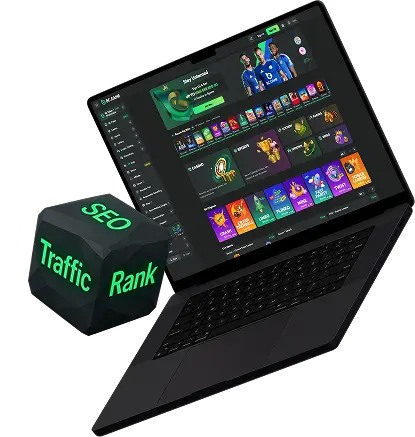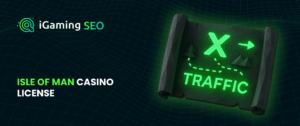
Brazil has quickly become a standout spot in the worldwide iGaming world, thanks to new licensing rules that are shaking things up and creating real opportunities for operators ready to dive in.
Why Brazil iGaming License is in Demand
Operators are lining up for the Brazil iGaming license because it unlocks a huge crowd of players in a country with over 200 million folks and booming online access. Skipping this step means dealing with blocks on sites and big penalties, so it’s a must for anyone wanting to run things legally.
The push started back in 2018, with full regulations hitting in 2024, turning a wild west setup into something structured. The government spots iGaming as a goldmine for taxes, possibly raking in billions to help the economy. For companies, grabbing a Brazil iGaming license is about planting roots in a bustling arena, particularly with sports betting fueled by Brazil’s obsession with soccer. Pioneers like KTO are already reaping the rewards.
On top of that, it builds real faith among players. Unchecked markets bred distrust with fraud risks, but licensed outfits have to stick to solid defenses, which strengthens bonds. This echoes wins in areas like the Netherlands, ramping up interest in the brazil iGaming license throughout Latin America.
Key Requirements for a Brazil iGaming License
Landing a Brazil iGaming license calls for jumping through serious hoops centered on trustworthiness and duty. Right away, firms need to plant a flag in Brazil by registering locally; outsiders have to set up shop here or link arms with homegrown partners for proper monitoring and tax handling.
Money matters are front and center, requiring proof of solid finances with capital buffers scaled to your setup. Expect a 15% slice on gross gaming earnings for taxes that go toward community good. AML and KYC checks are ironclad, involving deep dives on users to flag dangers and maintain spotless logs, plus barring risky accounts.
The tech side demands seals of approval for safeguards, honest results, and data locks, matching up to worldwide benchmarks. Firms also need to play by Brazilian work rules and sort out any past issues. For those supplying tech, additional verifications make sure their gear fits the bill. All this keeps the field honest and expanding.

Types of Brazil iGaming License Available
The setup in Brazil lays out straightforward choices under the Brazil iGaming license for various corners of iGaming. The core federal version from the Ministry of Finance handles sports wagers and digital games like casinos, good for five years with space for up to three labels.
Break it down, and you get casino-specific ones for machines and card tables, needing checks on random generators. Sports options zero in on matches and simulated stuff, perfect for Brazil’s athletic vibe. Lotteries carve out their niche, often tied to states but geared for web play.
B2B versions cater to makers of programs and transaction handlers, insisting on inspections for safety and smooth fits. Certain states toss in extras, but the national ones blanket the land. It’s built to flex for newcomers and vets, with wiggle room for fresh angles like competitive gaming.
Main Benefits of Holding a Brazil iGaming License
Carrying a Brazil iGaming license delivers solid perks, kicking off with doors wide open to a scene where folks might drop over $1,500 each by 2028. It dodges pitfalls of off-the-books work and lines up for reliable progress in a market worth fortunes.
Earning player loyalty is a big win: sites can push their stuff carefully, with features promoting smart play that encourage repeats. Backing from groups like the SPA lends weight.
Hooking into Brazilian finance networks eases deals in home currency, boosting smoothness. Contributions through taxes aid the public, and outfits enjoy smoother sailing with less courtroom drama and stronger regional connections. Compared to rigid places like the Isle of Man, Brazil blends oversight with fresh thinking, suiting go-getters.

Costs and Process of Getting a Brazil iGaming License
Snagging a Brazil iGaming license requires real outlay and a clear path. The main hit is BRL 30 million for the five-year stretch, roughly US$6.1 million, on top of a BRL 100,000 entry fee and backup funds.
Kick things off by gearing up: establish a local base, round up papers on cash flow, guidelines, and equipment. Send it to the SPA following 2024 guidelines, with green lights starting in 2025.
Scrutiny digs into histories, reviews, and setups, which might drag on for months. Clear that, fork over the cash, and tweak your online presence, such as tacking on .br endings. Annual 15% takes on earnings and check-ups pile on steady costs.
Mixes between state and national levels can snag progress, but pros can iron it out. Those first 14 approvals in 2025 highlight that readiness leads to victory.
Compliance Under a Brazil iGaming License
Keeping up with a Brazil iGaming license hinges on strict guidelines for fair dealings. Sites have to roll out personal caps, opt-outs, and info on potential pitfalls.
AML/KYC means ongoing vigilance, spotting weird moves and vetting important people. Alerts to higher-ups are required, powered by smart systems.
Certified teams run frequent inspections across money, tech, and promotions that steer clear of young audiences. Slip-ups bring fines or shutdowns.
Privacy follows LGPD standards for user info. Supply chain folks must toe the line too. It lifts the whole game, akin to setups in the UK.
Is Brazil iGaming License Right for Your Business
To sum it up, the Brazil iGaming license matches outfits chasing fast expansion in Latin America. If you’ve got the means for regs and new ideas, it’s a prime pick for payoffs. Post-2025 steadiness sets the stage in a tough arena.
Yet, tinier players lacking local ties might struggle. For committed teams, the Brazil iGaming license lays groundwork for enduring wins in a lively setting.



